The highest echelons of the top law firms in Canada have a diversity problem. Only one per cent of the partners at the top 40 law firms are Black. Simply put, the largest firms in the country are failing to hire and promote Black lawyers.
When I became a partner I started to ask the question, why aren’t there more like me? There are multiple reasons for this disparity. As long as big law firms continue to make substantial profit year over year and the clients that they serve to do not demand change in the firm’s diversity ranks, the status quo will continue. The thinking is why change if we continue to make gobs of money?
This thinking is counterintuitive. In fact, returns are enhanced when firms take diversity and inclusion seriously and make it the forefront of hiring and promotion practices.
Take a Free Trial of The Lawyer’s Daily Now
Another reason for the disparity is that partnership hiring committees tend to be comprised of non-minorities who either consciously or subconsciously look to promote those who look and think like them. Unfortunately, this “country club” mentality has shut Black lawyers out of achieving the highest ranks of law firm status. Moreover, the stark reality is that these firms simply do not hire enough Black lawyers at the associate level in order to be in a position to promote them or when they do hire Black lawyers, the attrition rate is historically high. Most associates only last a couple of years at big firms until they move on.
However, the top law firms cannot take all the blame. Law schools, which create the pipeline to “Big Law” have also failed the Black legal profession.
The cost of law school has significantly risen over the past two decades which has become a barrier for minorities to gain entry into law school. Prior to even getting into law school, the increased selectivity of Canada’s law schools, with an emphasis on grades and LSAT scores, while primarily failing to consider one’s cultural and economic background has hindered these schools from becoming more diverse. Then, once Black students graduate from law school they are more likely to become solo practitioners than to work at a big law firm, due, in part, to the exclusivity of these firms.
The legal profession is behind in promoting Black lawyers, while other industries have embraced diversity producing favourable results. Companies with diverse executive teams were 29 per cent more likely to outperform their competitors. A Harvard Business Review (HBR) study analyzed diversity among venture capital firms and found that greater diversity leads to better investment returns. Data from 1990-2018 found that belonging to the same racial group increases the likelihood of these firms choosing a candidate by 39.2 per cent. HBR’s research found that the more similar the investment partners, the poorer their investments fared. Like venture capitalists, law firms, historically white-dominated, often rely on a few key individuals to strategize and make decisions. Diverse partners make better decisions, and high-quality decision-making is crucial to success.
Moving forward, there are a number of initiatives law schools and firms can take on to successfully integrate diversity into their culture and reap the returns. Schools should not only focus on LSAT and university grades, but also look to integrate cultural and socioeconomic status in their entrance criteria.
Employee handbooks and policy documents should ensure full alignment with diversity policy, signalling to students and employees that the organization is committed to providing a healthy working environment.
Hiring and interviewing protocol should be reviewed to ensure adherence to Law Society of Ontario principles on diversity and inclusion. Interview questions regarding a candidate’s interests and life experience must be asked in a manner that ensures diverse candidates feel welcomed and supported throughout the recruitment process.
None of these changes, if implemented, will feel sincere to racialized law students and lawyers unless the profession addresses its diversity shortcomings at the highest levels. Otherwise, in the end, Big Law will suffer for it.
Ryan Watkins is a partner at Whitten & Lublin in Toronto.
Interested in writing for us? To learn more about how you can add your voice to The Lawyer’s Daily, contact Analysis Editor Peter Carter at peter.carter@lexisnexis.ca or call 647-776-6740.
< Back to In-House Counsel Resource Page
The Lawyer's Daily
This article was originally published by The Lawyer's Daily – providing Canadian legal news, analysis and current awareness for lawyers and legal professionals who need a real-time view on the shifting legal landscape.


